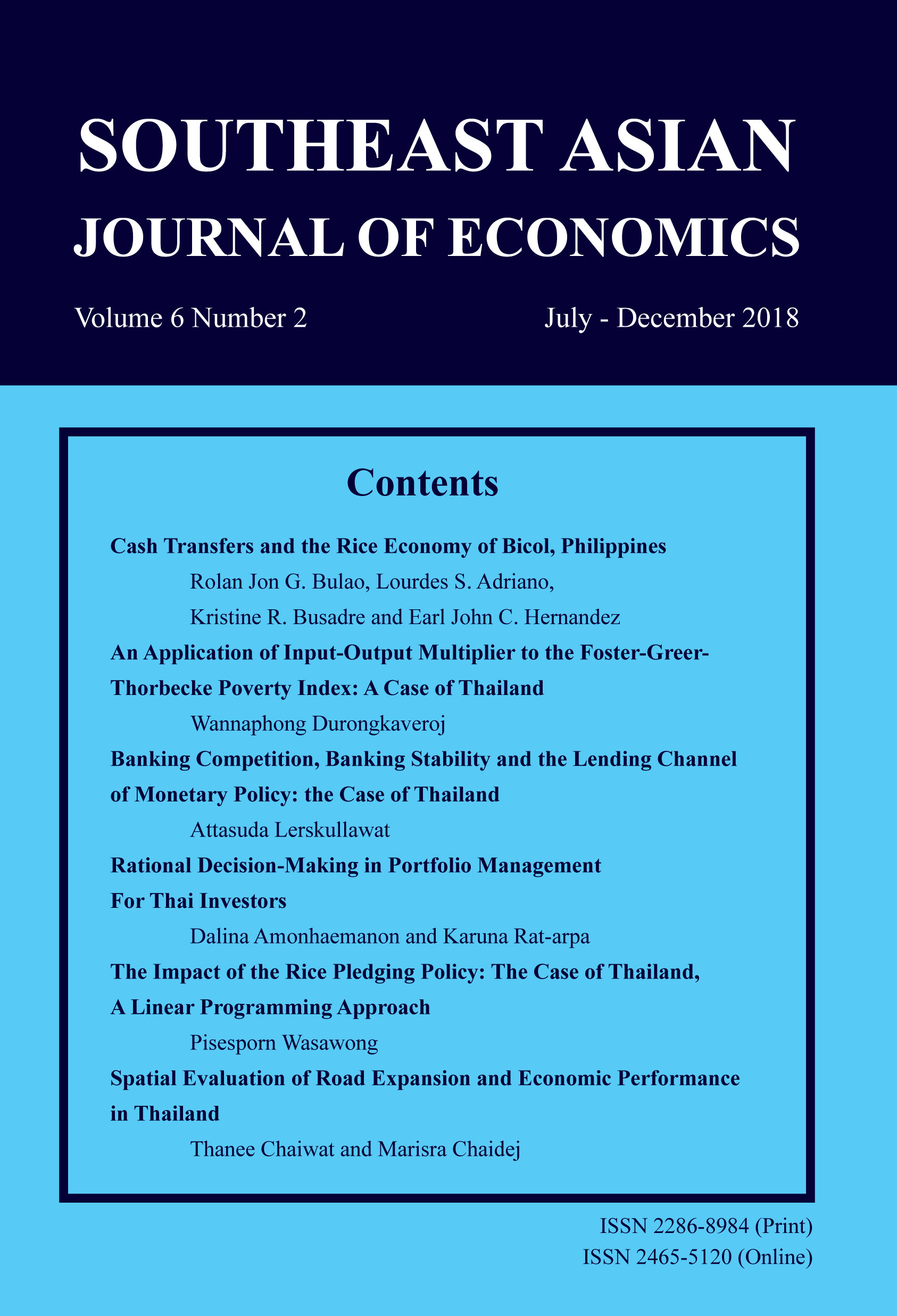Cash Transfers and the Rice Economy of Bicol, Philippines
Keywords:
Conditional Cash Transfer, 4Ps, Rice Value Chain, Poverty, Positive Externality, MultiplierAbstract
Most studies on the Philippine government’s conditional cash transfer,Pantawid Pamilyang Pilipino Program (4Ps or Pantawid), assess its impact on education, health, and nutrition, the program’s primary targets. This study attempts to determine qualitatively the program’s impact on the rice economy of Bicol, Philippines, through a rice value chain (RVC) analysis. The analysis traces and maps the value chain segments of rice demanded by 4Ps consumers and the changes in the organization, structure, and performance of such segments due to the 4Ps consumers’ demand push. The study finds that rice consumption of beneficiaries has changed in terms of quality and quantity. Moreover, beneficiaries have had better access to credit because of 4Ps. Millers also manifest increased profitability. Among the RVC players, the program has greater impact on retailers and wholesalers. The study provides evidence on the positive unintended consequences of 4Ps to local economies.
Downloads
Published
How to Cite
Issue
Section
License
The submission of a manuscript implies that the paper is an original work and has not been published elsewhere. The author(s) authorize the journal to reproduce or distribute the paper in printed or other electronic forms.







